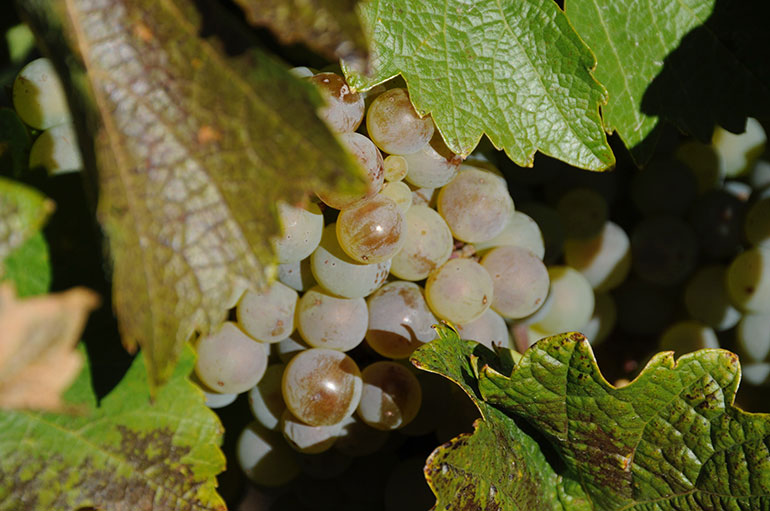UBC, BCIT partner with private cannabis company to brew beverage ideas
A unique partnership between UBC Okanagan, the British Columbia Institute of Technology and a private company, Pacific Rim Brands, has opened the door for the research and development of cannabis-infused beverages.
Professor Susan Murch, who teaches chemistry at UBC Okanagan, and Paula Brown, director of BCIT’s Natural Health and Food Products Research Group and Canada Research Chair in Phytoanalytics have partnered with Pacific Rim Brands, a Kelowna-based integrated cannabis company to develop beverage formulas containing cannabis extracts.
“We are at the early stages of this research and are very excited about the potential for both interesting science and new products for consumers,” says Murch.
Susan Murch, professor of chemistry.
Murch’s research investigates the chemistry of plants and how plant chemistry affects human health. She’s interested in cannabis ingredients and how they can be used in beverages.
“We are seeing industry recalls in cannabis products because we really don’t know how to use the ingredients on a large scale,” she says. “Making stable products that can sit on store shelves for months or years requires innovation.”
BCIT’s Paula Brown also investigates plant chemistry and works with the natural products industry to develop new products, establish standards of quality and ensure regulatory compliance.
“Like any new sector, the science and formulation will be the most important element to ensure consistency, scalability and trust,” says Brown. “There is a lot of work to be done to develop stable, high-quality, consistent cannabis formulations that consumers can use with confidence.”
The partnership with Pacific Rim allows Murch and Brown to develop high-quality cannabis beverages for health, wellness and leisure, explains Kevin Letun, founder and chief strategy officer of Pacific Rim Brands.
“This is a very exciting time for research institutions and cannabis companies in the private sector,” says Letun. “The impeccable credentials of these professors and their on-going research will give industry partners and the consumer the quality assurance they require.”
The collaboration between BCIT, UBC Okanagan and Pacific Rim Brands provides the opportunity to conduct more research about the chemicals in cannabis and at the same time conduct research on products that can be brought to markets across Canada and globally,” says Kim Dotto, Dean of Applied Research at BCIT.
“This partnership reconfirms the ongoing commitment required to drive research nationally and internationally,” adds Dotto. “BCIT is committed to these collaborations and applauds the highly-skilled researchers involved with this exciting project.”
Phil Barker, vice-principal research at UBC’s Okanagan campus, says the university has a long history of innovation and commercializing new products. UBC was recently named one of the world’s most innovative universities on Reuters Top 100 list—one of only two Canadian universities to receive this distinction.
“Our campus has a growing reputation for embracing creativity and risk-taking, and this research partnership is no exception,” says Barker. “We’re excited to be at the forefront of responsible research that prioritizes the safe use of cannabis in our communities.”
For more information about UBC Okanagan cannabis research, visit: ok.ubc.ca/okanagan-stories/o-cannabis
About UBC’s Okanagan campus
UBC’s Okanagan campus is an innovative hub for research and learning in the heart of British Columbia’s stunning Okanagan Valley. Ranked among the top 20 public universities in the world, UBC is home to bold thinking and discoveries that make a difference. Established in 2005, the Okanagan campus combines a globally recognized UBC education with a tight-knit and entrepreneurial community that welcomes students and faculty from around the world.
To find out more, visit: ok.ubc.ca.
About the British Columbia Institute of Technology
- With five campuses and more than 50,000 students, BCIT is one of BC’s largest post-secondary institutes.
- BCIT offers more than 300 programs—from certificates and diplomas, to bachelor’s and master’s degrees—in areas such as applied and natural sciences, business and media, computing, engineering, health sciences, and trades and apprenticeship.
- BCIT degree graduates have a 96 per cent employment rate.
- BCIT applied research creates innovative solutions to industry challenges and is critical to the growth and success of BC business. It is integral to the Institute’s unique education model – enhancing the student experience through hands-on learning opportunities that solve real-world problems.
- For more information: www.bcit.ca
About Pacific Rim Brands
- An integrated cannabis company developing proprietary beverage formulations for consumer trusted products and brands
- Scientific expertise through partnerships with UBC Okanagan and BCIT ensuring the highest standards of quality to ensure regulatory compliance
- Focused on the health, wellness and leisure markets across Canada and around the Globe
- For more information: pacificrimbrands.com
The post Researchers investigate cannabis-infused beverages appeared first on UBC's Okanagan News.


